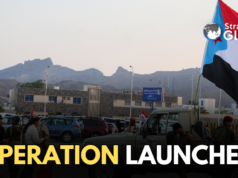In November, India will send off the 40th expedition to Antarctica, 50 people in all comprising a mix of scientists from various disciplines including medical personnel and logistics experts, who will spend a year on the ice continent studying the weather among other things.
“Antarctica is a natural laboratory,” says Dr Ravichandran, Secretary, Ministry of Earth Sciences, during a chat on StratNews Global. “Scientists will study the physics of Antarctica, the biology of Antarctica, the chemistry of Antarctica, everything.”
Study of the ice continent, he said, provides vital clues to India’s annual monsoon. By drilling through the ice and extracting ice cores for study, one gets an idea as to past weather patterns and whether these have influenced India’s rainfall. The analysis of this year’s monsoon is it will be normal but some parts of the country will get more rain than others.
The analysis also indicates that India’s northeast, which gets maximum rainfall, could see less in the years ahead with desert states like Rajasthan getting more. One already sees that happening with parts of the state experiencing floods.
Experiments with fungi found in the ice could point the way to advances in disease treatment, such as tuberculosis, he said. On the flip side, Antarctic krill, which is a great source of protein, could be harvested but there are protocols and rules governing their exploitation. Besides, India lacks the fishing base necessary to take advantage.
Antarctica expeditions are expensive and require extensive planning and working with other nations, agencies and international bodies. India is yet to acquire an ice breaker vessel largely because of the cost involved, around Rs 3000 crore.
Research work on the Arctic, which is the North Pole, is comparatively easier since it is highly collaborative, international stations take care of accommodation, food and transport, leaving the scientists free to pursue their research.
Ultimately, the polar regions are all about geopolitics. With studies suggesting Antarctic waters could be ice free in the summer, the superpowers and middle powers like India are hedging their bets, keeping their foot in the ice continents and weighing how best to utilize their presence to advantage.
Thirty eight years in journalism, widely travelled, history buff with a preference for Old Monk Rum. Current interest/focus spans China, Technology and Trade. Recent reads: Steven Colls Directorate S and Alexander Frater's Chasing the Monsoon. Netflix/Prime video junkie. Loves animal videos on Facebook. Reluctant tweeter.




